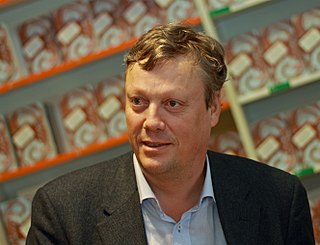A Quote by John Lanchester
Once I've properly finished a book, my ideal state of being would be to never think about it again. But with 'Capital,' I felt I'd spent so much time with the characters that they were very, very real, and I definitely had a sense of loss about leaving them behind in a way I've not quite had before.
Related Quotes
About 85 per cent of my "thinking" time was spent getting into a position to think, to make a decision, to learn something I needed to know. Much more time went into finding or obtaining information than into digesting it. Hours went into the plotting of graphs... When the graphs were finished, the relations were obvious at once, but the plotting had to be done in order to make them so.
I lived in Greece for about four years of my life, and living there had a huge impact on my life growing up. My father was very much adamant that we would learn about our culture. It's a very rich culture to be a part of since it has such a great history behind it. I definitely carry that in my job, and I am very passionate.
For the first time in my life I tried whale. It was very chewy and quite fatty. My friend had had whale before, so I knew it would be quite blubbery. It was delicious. I loved it. It was smoked, so it had a lovely kind of tangy taste to it. We had it a couple of nights. I was won over. It was very yummy.
It's funny what [producer Richard Zanuck said about even though you can't quite place when the book or the story came into your life, and I do vaguely remember roughly five years old reading versions of Alice in Wonderland, but the thing is the characters. You always know the characters. Everyone knows the characters and they're very well-defined characters, which I always thought was fascinating. Most people who haven't read the book definitely know the characters and reference them.
There was a sort of irony in the fact that these [superhero] characters - many of whom in that period, the Golden Age, had been evolved to fight the Nazis - were themselves very much in the Nazi ideal. The idea that you can solve problems through physical strength, by being stronger and more dominant and more powerful - that is fascism. I mean, that's it, that's the essence of fascism. I don't think the creators of the superheroes or the kids who were reading them at the time were the slightest bit aware of it.
Long before the technology revolution there was declassification of documents and I've spent quite a lot of time studying declassified internal documents and written a lot about them. In fact, anybody who's worked through the declassified record can see very clearly that the reason for classification is very rarely to protect the state or the society from enemies. Most of the time it is to protect the state from its citizens, so they don't know what the government is doing.
I never stopped believing in us and I never felt like I was wanting for anything, except for my father, and that was not going to be. I describe in the book [that] I don't think I ever felt young again in that way. I never felt I had my 15, 16, 17 kind of years the way I maybe should have. It's a huge dent in you that it's hard to knock out and make it all smooth again.
Even when you think you can detach yourself from the characters, you don't. Because you're spending so much time trying to realize this person and make them real that they do infect you, in a way. And you do take them home and live with them, even if you think you're turning the character off. But in order to pull off a role convincingly, you wind up thinking about that person all the time, and it does sort of creep into you. And then there are things that you'll respond to, or react to in a very different way than you would normally.






































